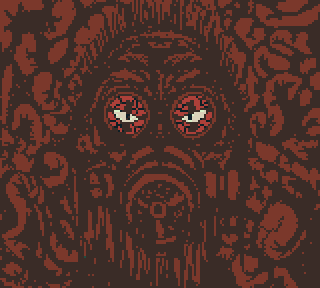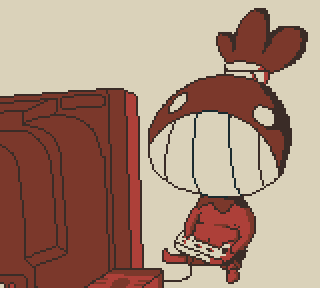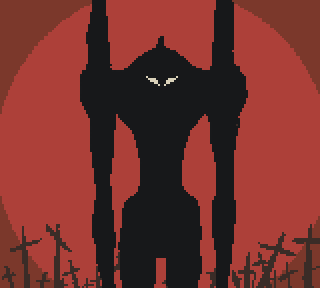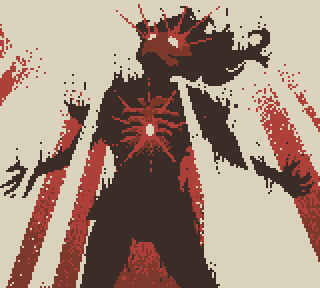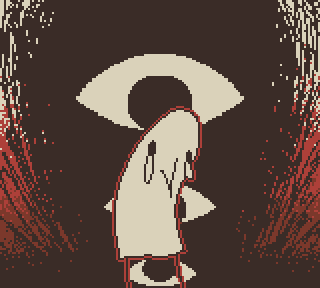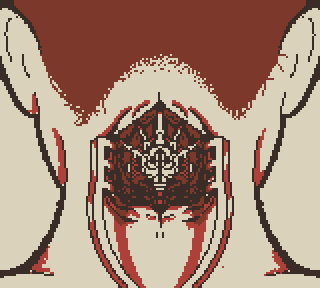Comic Thoughts: Dorohedoro
Last night I finished the manga Dorohedoro, which is mostly
about lizards and dumplings.
I watched the anime a little while ago (it was a great time), and decided to
give the manga a shot to see where the story went. Turns out the anime ends
at around chapter 40, but the manga is a whole different experience.
While the anime was a fun and fairly violent romp, the manga cranked the
graphic violence up to 11, throwing in all the viscera and gore they
couldn't put on the medium screen.
They also cranked the nudity up while they were at it, with more anime boobs
than entirely necessary. I like anime boobs as much as the next internet
denizen, but at times it felt like the entire manga may have been an excuse
for the author to draw nipples.
The story unfortunately spins its wheels quite a bit after the
anime leaves off. It gets confusing, the pacing gets weird, and it pretty
much does nothing important for the next 80 chapters. It picks up again
after that, however, and finishes strong once things all click together.
Even when the story drags, the gorgeous artwork, ridiculous characters, and
wild world building keep you reading. The humour stays pretty consistent
throughout as well, and I was impressed how author managed to build a
narrative in which the dismemberment, mutation, and even recurring deaths of
some characters managed to be hilarious -- and somehow despite the easy
access to healing / reviving powers they managed to keep the stakes and
tension up when necessary.
It may have been too long and convoluted, but was a totally wild, hilarious,
gory bit of fun with a very unique setting and very unique cast of
characters.
Year End: 2023
As 2023 draws to a close and I spend the last two weeks of the year in
trash-goblin form doing nothing but playing old junk games and eating 2-3
times my daily recommended calorie intake, I reflect upon the year and the
media I've consumed, and the things I've worked on.
- Read the rest -
Game Thoughts: Gravity Circuit
Today I beat what is likely my last game of the year:
Gravity Circuit. This one was an impulse sale purchase, but
had caught my attention multiple times over the year.
I'm normally not a Megaman player -- over the years I've dabbled in a couple
titles, but generally wasn't a fan of the shooting mechanic. Megaman Zero
was more of my speed (he uses a sword instead of a blaster), but those games
always felt a little too hard on the difficulty side for me.
Gravity Circuit is basically knock-off Megaman Zero, but ditches the awkward
sword / spear attacks for a simple punch combo that felt absolutely
fantastic. Actually, every control felt exactly like it should, and
starting the game I was surprised how I was instantly comfortable
with the character movement and combat (with the exception of the grappling
hook which I very much disliked!)
I had a blast getting through the game. The developers clearly put a lot of
love into every aspect -- the bosses had little stories (just enough!) and
were tough, rescuing the bots was always super satisfying, and the little
base hub and skill unlocks were fun to play with.
While the majority of the game wasn't terribly difficult, I really struggled
with the final couple bosses, and by the time I finally beat the last one my
thumbs were sore and my heart was pounding. It took me at least 20
attempts and many experiments with different upgrades to cheese as much as
possible!
Overall it's a fantastic (and gorgeous) title, and I'm glad I found time to
sneak it in!
Series Thoughts: Evangelion
Last weekend I found myself with nothing pressing to do. No chores, no
responsibilities -- just 2 full days of free time to engage in side
projects, hobbies, and hang out with some old friends.
Instead, I ended up binge-watching Evangelion and most of
the related films.
- Read the rest -
Book Thoughts: The Sunlit Man
I've just finished listening to The Sunlit Man by Brandon
Sanderson, the last of his Kickstarter book series. Out of the four novels
released, this was definitely in the bottom 50% for me, as while some of the
content content was interesting in the grander scheme of his "Cosmere"
universe, the book on its own was fairly bland.
Now, that's not to say there wasn't any action, interesting settings, or
tearjerking moments in The Sunlit Man; when I say bland I mean this entirely
in the context of "within Sanderson's novels". And he's got a lot of them --
by his own estimation this is his 50th novel.
Mild Spoilers after the jump.
- Read the rest -
Comic Thoughts: Goodnight Punpun
Last night I stayed up until 4 am reading the last 75 chapters of Goodnight Punpun, a manga about a
cute poorly drawn bird navigating the ins and outs of childhood.
At least that's what it seemed like it was about for the first couple pages. In reality, Goodnight Punpun is a thoroughly depressing story
about a boy's life as he grows, suffers through a difficult puberty, struggles with family and relationships, and grapples with serious mental health issues. It's also about
the people around him struggling in their own lives and relationships.
This was a terribly upsetting work of fiction. The twists in the story are legitimately twisted in ways that weren't enjoyable at all. The awful
things the characters do to each other out of desperation, out of desire, out of not knowing what else to do, are
heartbreaking... yet I was compelled to keep reading, as beneath the selfishness and depression are just people trying to find happiness. The author hides gems of joy throughout, shining all the brighter for the pitch black around them.
A awful as everyone is throughout this story, they all feel very human. The downright grossness of puberty and the stupidity it enables, the longing for other
people, the underlying thoughts of mothers and fathers yoked into the roles while still being their own individuals.
The love and hurt and hope and betrayal that comes with living a life with other people is on raw display and, for the most part, feels believable.
There's parts of the story that I felt were unnecessarily awful to the point of just trying to shock the reader,
especially near the end of the series, but I think the project as a whole was a fantastic work that was worth the read.
After being dragged through the mud and making it to the other side of Punpun, I think I can crystalize a few key sentiments out of the whole ordeal. Maybe not the ones the author meant to convey, but ones that resonates with me:
- That the longing and seeking of perfection can only ever lead down paths away from it. It's only by learning to accept the imperfect that we can move forward and find something worth keeping.
- That some wounds can't be healed, only lived with.
I'm glad I read it, and simultaneously glad I'll never have to read it again.
Thoughts: Why I Make
I've been having a very grumpy day today. Perhaps because I stayed up too
long last night consuming the last 75 super cheerful chapters of
Goodnight Punpun, but I think it's primarily due to a general frustration at
my inability, of late, to produce anything.
My goal for the day was to visit a local Gundam store and get some black
Friday deals, but the very idea of spending money on a hobby that was just
for fun made me even more irritable. Why spend money on a hobby that doesn't
further any of my skill towards finishing any of my projects? But then,
instead of doing any projects I just sulked around the house being
frustrated and indecisive.
I got pondering as to why I want so badly to do these projects. I can't
think of a single time in my life when I wasn't working on
some kind of personal project, yet almost none of those projects
have every come to fruition. I've identified a pattern in which I tend to
get hung up on some skill ceiling, then latch on to another (different)
project which I feel would help improve some skill I felt I needed for the
previous project. This is an infinite chain. I'll make a comic to practice
art so I'll be better at character design, scratch that, I'll write a story
to practice writing so my comic can be better, scratch that, I'll do a world
building project to prepare better for doing story writing, scratch that
I'll make a small game to try exploring some smaller scale world building,
to get better at world building in general! Round and round we go.
This pattern has left me a habitual dabbler. I can draw well enough
to surprise colleagues, but not consistently well enough to draw what I
want. I know my way around blender, but haven't ever produced
anything worth looking at. I can put together (basic) melodies, do photo
editing, write code, assemble storylines. I have a wide breadth of
slightly-more-than-zero skills, but none deep enough to produce anything
I've felt worthy of publishing. This in turn activates the defeatist in me
and a project is abandoned before it ever got anywhere meaningful.
Thing is, "Make something meaningful" is my only driving force. Since
childhood I've had this constant drive to produce something,
anything, that some stranger somewhere would someday feel was
meaningful. To make something that someday could be
someone's favourite thing, even if it was only one person. That
desire, I think, may also be my blocker, as my dissatisfaction with my own
abilities terminates my confidence in my projects' value, preventing me from
finishing them as I begin the infinite project-hop dealth-spiral to "less
meaningful practice works", which are in turn not "meaningful" enough to
keep me driven.
Having read a lot of fantastic works this year, I wonder if perhaps I'm
simply approaching it wrong. Many of the stories (the best) I experienced
felt as if they were trying to say something, and not just exist.
I think, perhaps, that these stories and experiences that stick with people
-- stories worth experiencing -- are produced by people with
something to say. Something they feel they need to share or some
awful thing inside of them they're determined to exorcise and trap within
some artistic output. The things they need to say don't even need to be
important, they don't need to be the grand ideas of philosophers or
geniuses; they just need to be felt strongly enough to push the project
along.
...I don't know that I've got anything I need to say that badly. I've lived
a fairly simple and fortunate life, and while I've got my scrapes and scars
and opinions, I've never felt so powerfully about them that I've been driven
to immortalize them as art. I've just been trying to make stuff because I
want to have made something.
Maybe I need to turn inward and take a look at the stuff I feel but don't
say, and see if I can find any coals hot enough to power my engine. To dig
deep and find something I want to say enough that I won't care if the art is
crappy or my code is buggy or if people don't like what I produce.
If after my search I can't find anything worth saying, maybe I'll stop for a
bit. If I'm managing to live such a peaceful life, maybe I should just
embrace that for a while and stop agonizing over my lack of creative output.
I could practice drawing outside of projects, play with software
without a particular goal for a bit, and just enjoy life while life's good.
Or maybe -- and by that I mean most likely -- I'll have shaken off this funk
by tomorrow and be back at the old death spiral.
Book Thoughts: A Desolation called Peace
After devouring the first book in the series, I have now finished book 2 of
Arkady Martine's Teixcalaan series:
A Desolation Called Peace.
The sequel was good! It offers a bit more cerebral sci-fi than the first
book, with much deeper investigation into language, memory, and the concept
of what it means to be a person -- all themes present in the first book, but
brought front and centre in the second now that the worldbuilding has been
established.
On paper this book is better on all fronts. The politics, the stakes, the
philosophy, the drama -- without the need to explain how things work there
was more room for meat. That said, I did
find it a a little less engaging than the first book -- partly because I
like the world building (there's still some here, but not as
much!), and partly because so much of the action was happening
away from the city we spent the whole first book learning about. I
would have loved to see more in-city politics that what we got in the
sequel!
I really enjoyed some of the new characters, and the relationship
between Nine Hibiscus and Twenty Cicada was fabulously done. Developments
for pretty much every other returning character were also interesting --
with the exception of the main protagonist, Mahit, who I found myself
disliking more and more over the course of the novel (philosophical
differences, I think).
The ending of the novel left room for more of the series without
necessitating it, and I think the bulk of the story the author planned to
tell has now been told. That said, with 2 Hugo awards in a row it would be a
shame not to get read more stories from within in the Teixcalaan Empire.
Game Thoughts: Slay the Princess
Slay the Princess released last month and I finally got
around to playing it. It was a treat!
I've been interested in minimalist game development recently, and visual
novels are a big part of that domain -- games that are primarily dialogue
and still images (and usually choices).
If you dig past the upper crust of VNs (mostly comprised of romancing anime
harems) there's lots of indie developers doing really interesting stuff with
the genre. Slay the Princess is a super fresh take on VNs, utilising the
common mechanics to get weird.
The story plays with narrator(s) of questionable trustworthiness and is
filled with interesting decisions to be made. Surprisingly the game
was fully voice-acted, which added extra layers of immersion as the game
progressed.
I played through to the credits once and was really happy with the
experience. The pacing was great for the single playthrough, giving the
player just enough time to figure out how things "work" before getting to
the ending. The music and voice acting were also wonderful, and the entire
concept was creative, unique, and executed perfectly.
Having beaten it once, however, I'm not sure I want to dive back in. It was
a fantastic experience, and I'm admittedly curious to see some of the other
routes I could have taken (some photos I've seen online hint to me missing
out on some really interesting ones!), but knowing how the game
works spoils a big part of what made it fun on the first
playthrough.
It was short, but it's got my appetite up for more indie / unique visual
novels!
Book Thoughts: A Memory called Empire
Yesterday I finished the audiobook version of
A Memory Called Empire by Arkady Martine.
It was really really good.
While I read a lot of Science Fiction, "Space Opera" isn't usually my cup of
tea as it can sometimes read as fantasy-but-in-space, and I've got normal
fantasy for that. I want philosophy and anthropology from my sci-fi. It
turns out, however, that I can be perfectly satisfied with a good story in
space.
The book opens with an absolutely fantastic dedication:
“This book is dedicated to anyone who has ever fallen in love with a
culture that was devouring their own."
What a fucking concept and dedication! As someone born and raised in North
America this isn't something I've ever given much thought to, and the
dedication kept echoing throughout the story. It's rare that I remember a
dedication by the time I finish a book, but I had to go back and re-read
this one at the end.
After the dedication, we're presented with what is the most preposterously
over-jargoned prologue I've ever had the displeasure of reading. Especially
in audiobook form, the prologue was almost impenetrable. I have a friend who
actually quit the book before even finishing the prologue.
Once you're through those weeds, however, the story unfolds. A story about
the ambassador from a small space station to a galatic empire, replacing her
somewhat estranged predecessor and equipped with secret technology. The
protagonist's love for the empire she's working in is sold really well, and
I've got people in my life which I'm sure could relate strongly to her.
There's politics and violence and a bit of romance, some fancy technology
that makes one wonder about its implications (though this isn't speculative
sci-fi, so those implications aren't very thoroughly explored), and jump
gates. I had a great time all the way through, but it really picks up in the
second half.
Something I found very clever in the book was the way names were
designed. In the Empire, people's names are a number followed by a noun
(usually a flower or plant). This leads to names like "Twelve Azalea" and
"Thirteen Seagrass", but also plays into some pretty funny opportunities.
What's neat is this feels really scifi, while making all the names
extremely easy to remember. I didn't once find myself wondering
"who is Xlaxcalon again?" like one often will do in these kinds of stories
(warning: the prologue and sequences from the protagonists home station
absolutely do have ridiculous names like Yskandr Aghavn".
The difference between the names of the Empire's citizens and those on the
station is only one of many, and the book takes a lot of looks at what one
can feel like being treated like "a barbarian" when one is a foreigner in a
new land (even when one is well versed in the language and culture).
I really appreciate how much the author worked towards making the Empire
feel like a fleshed out culture, from the facial gestures to the poetry to
the religion it felt very cohesive and well defined.
It was a great read, and I've already started on the sequel!
